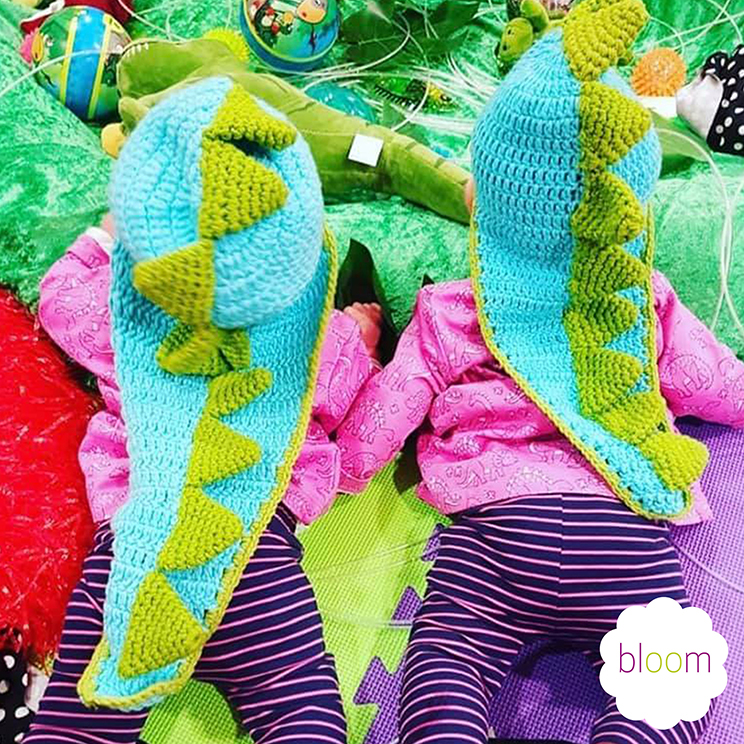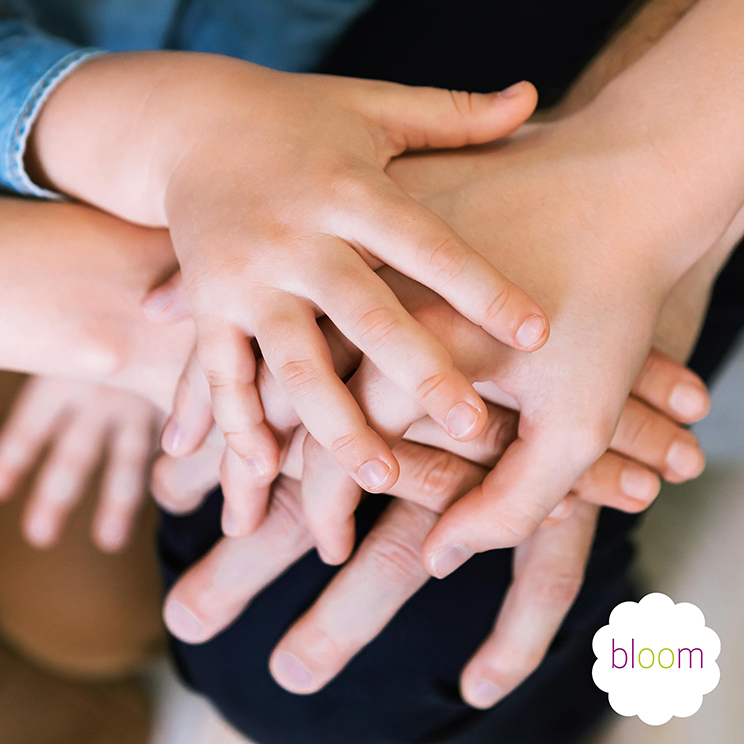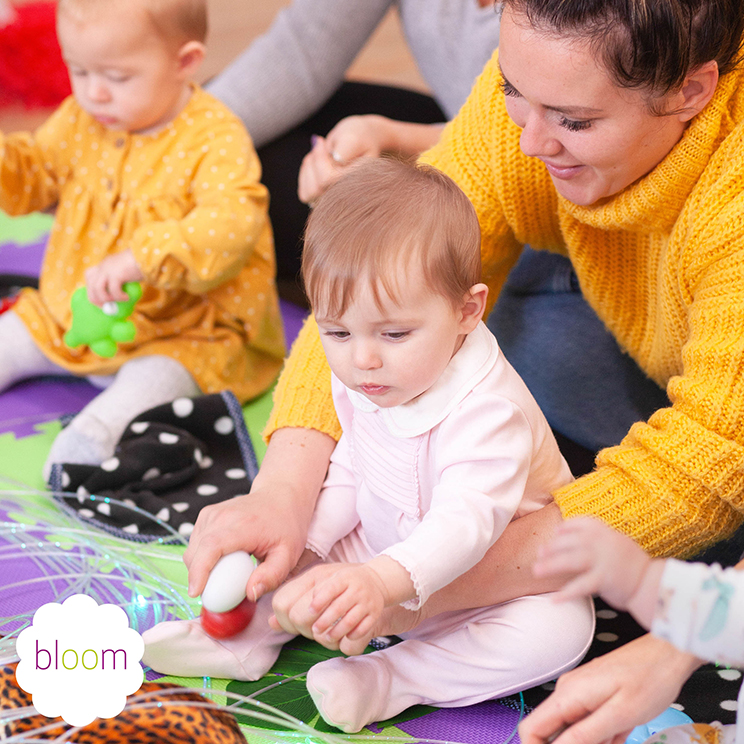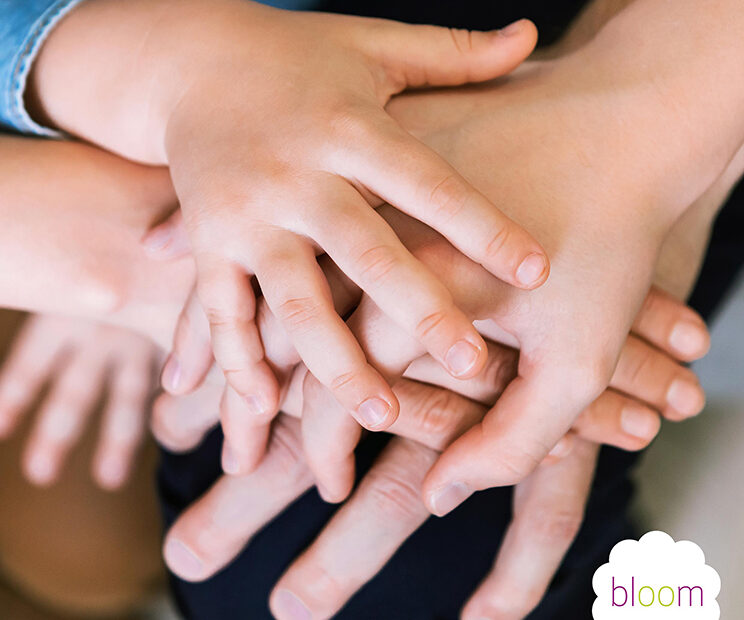Top tips for teaching empathy to your little one
For Random Acts of Kindness Day this year, we wanted to give you a few handy tips to support the development of your baby’s social skills and help them on their way to understanding and expressing empathy for others. It’s important to note that for most little ones, developing empathy takes time, and the earliest children begin to exhibit signs of being able to understand others’ thoughts and feelings is at around two years old. Whilst developing a sense of selflessness is a slow and steady process for your little one, at Bloom we believe in doing everything we can to help your baby be a part of a kinder, more empathetic next generation.

Establishing a secure, strong, loving relationship with you is one of the first milestones your little one will experience. Feeling accepted and understood by you helps your child learn how to accept and understand others as they grow. As children begin to experience the full spectrum of emotions, it’s important to validate each one. While we generally feel comfortable acknowledging emotions we associate with positivity, it is important to help children to put a name to all emotions. Sadness, anger or disappointment are all normal emotions, and allowing your child the space to feel them, and gently naming them, helps children to self-reflect. It is natural to want to try to cheer our little ones up straight away to protect them from any emotional hurt but encouraging children to feel their feelings rather than suppress them is a positive step towards learning to cope with their emotions. From an early age, using relaxation techniques can provide children with a strategy for managing their emotions. Simple things like reassuring your child they can take a break from an activity if they’re frustrated or taking deep breaths when they’re upset can provide a lifelong way to manage their emotions and develop self-empathy.

Children learn by observing the people around them. At around six months old, your baby will look to its caregivers and loved ones to gauge a reaction to a situation. By showing empathy yourself, you can teach children what empathy looks like and how it feels. Being open about your feelings will help your child to understand that other people can feel happy or sad, just like they do. While it’s important to teach empathy towards others, teaching children to show empathy to themselves is a critical aspect of emotional intelligence. If you talk to yourself with kindness and understanding, just as you would talk to a good friend, you encourage your child to use positive self-talk and to treat themselves, as well as others, with compassion.
Using play can be an effective way to help your little one to process their feelings and develop empathy. In fact, research has shown that dolly play activates parts of a child’s brain that allows them to develop empathy and social processing skills*. Try using dolls or your child’s favourite soft toys to talk to your toddler about feelings and empathy. As you play, ask them questions such as ‘This doll doesn’t want to share his piece of cake; how does that make the other doll feel? What should we tell this doll to do instead?’ As you discuss different hypothetical situations, you’re teaching your child to bounce back from setbacks, and to view challenges as opportunities for growth – helping them develop empathy and resilience.

In honour of Random Acts of Kindness Day, encourage your little one to work with you to do a special something for someone. As children observe the reactions of others, they’re learning to understand the impact of their actions on others, which helps them to develop empathy. Encouraging cooperation and working together on projects also helps children to learn to consider the feelings and needs of others. It’s important to remember that developing empathy takes time and practice, and children will make mistakes along the way. Being patient and supportive and teaching empathy from an early age, you can help set the foundation for a lifetime of compassion and understanding and a healthy, fulfilling life. Fostering positive relationships and being around other people is an important aspect of
emotional development, and the perfect opportunity to try our baby or toddler sensory classes. At Bloom, we will stimulate your little one whilst providing you with an outlet as a new parent to share experiences – positive or negative! – advice and support.
For more top tips, or to find out more about our specialist baby development sessions, contact us at enquiries@bloombabyclasses.com or call us on 0800 4647960
*Cardiff University, 2022, Doll play prompts children to talk about others’ thoughts and emotions – new study

